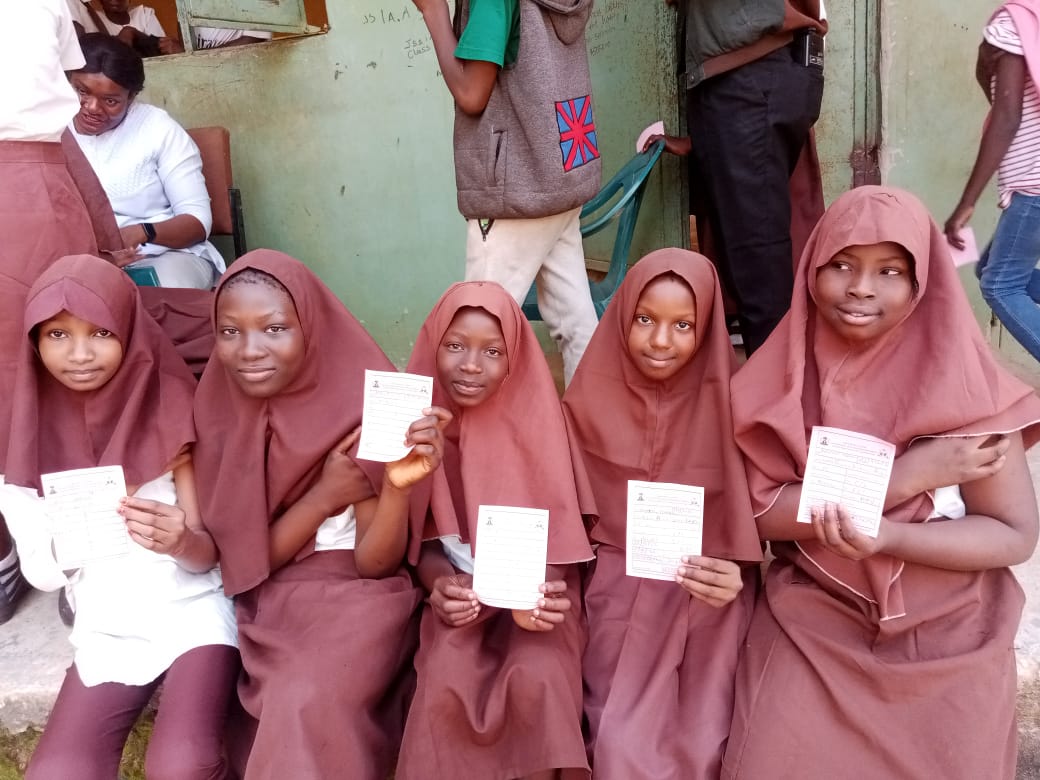
Medical experts have allayed the fears about misconceptions and safety of the Human Papilloma Virus vaccine introduced in Nigeria.
The National Agency for Food and Drug Administration and Control approved Gardasil as a single-dose schedule based on the scientific evidence that a single dose of the vaccine delivers solid protection against cervical cancer.
HPV is the most common viral infection of the reproductive tract, mainly transmitted through sexual contact, and most people become infected with HPV shortly after the onset of sexual activity.
HPV vaccines are vaccines that prevent infection by certain types of Human Papillomavirus. The HPV vaccines have the potential to prevent more than 90 per cent of HPV-attributable cancers.
There have been myths and misconceptions about the safety of the vaccine, but experts say the vaccine does not cause neurological problems, infertility, and scientific studies have ruled out a causal association between the HPV vaccines and blood clots.
A consultant obsterician and gynaecologist at Irrua Specialist Teaching Hospital, Irrua, Edo State, Dr Qudus Lawal, said persistent HPV infection caused over five per cent global cancer burden, including cervical cancer.
“HPV vaccine is a product of scientific research that has been used for over 15 years in many developed and developing countries.
“They are produced from viral like particles which have semblance with the virus and ability to stimulate the body to produce antibodies without causing infection. Peer reviewed research has shown its effectiveness in preventing both pre-invasive cervical diseases and invasive cervical cancer. HPV vaccination protects girls and women.
Lawal, who is also the Director of Programmes, End Cervical Cancer Nigeria Initiative noted that the HPV vaccine is the most studied vaccine with over 160 studies demonstrating its safety, the myths of sacrificial virgin and paralysis are unsubstantiated internet disinformation which are not proven.
“Over 270 million doses of the vaccine have been administered and no such report has been given. The choice of pre-school girls for vaccination is based on the well-established premise that prophylactic vaccine works best before exposure to pathogens. The safety studies on HPV vaccine are reassuring and not in doubt,” he added.
Also, a public health physician at the Johns Hopkins School of Public Health, Dr Chizoba Wonodi, noted that vaccinating a girl against cervical cancer with the HPV vaccine has been shown to be safe, effective and well tolerated, and one dose is protective against the cancer-causing HPV types.
Wonodi, who is also the convener and founder of Women Advocates for Vaccine Access said, “Since we have a protective vaccine, it is better to take the shot than risk being one of the 10,000 women that are diagnosed with cervical cancer every year in Nigeria, or worst, being one of the 8,000 Nigerian women that die from the cancer every year. HPV is a very common infection.
“Since the uncomplicated HPV infection has no symptoms, it is hard to know who is infected and who is not. Even virgins can get the infections from their husbands when they get married. Better to protect the girls before they are exposed to HPV infection. Better to vaccinate them as adolescents. Don’t wait till they are 18, vaccine the 9–14-year-olds now,’’ she stated.












